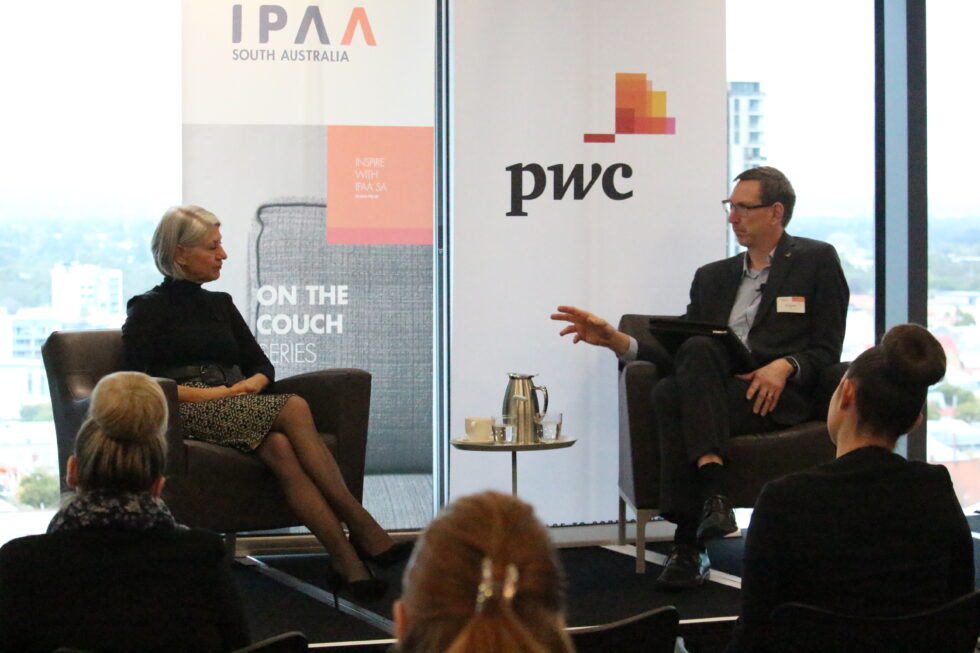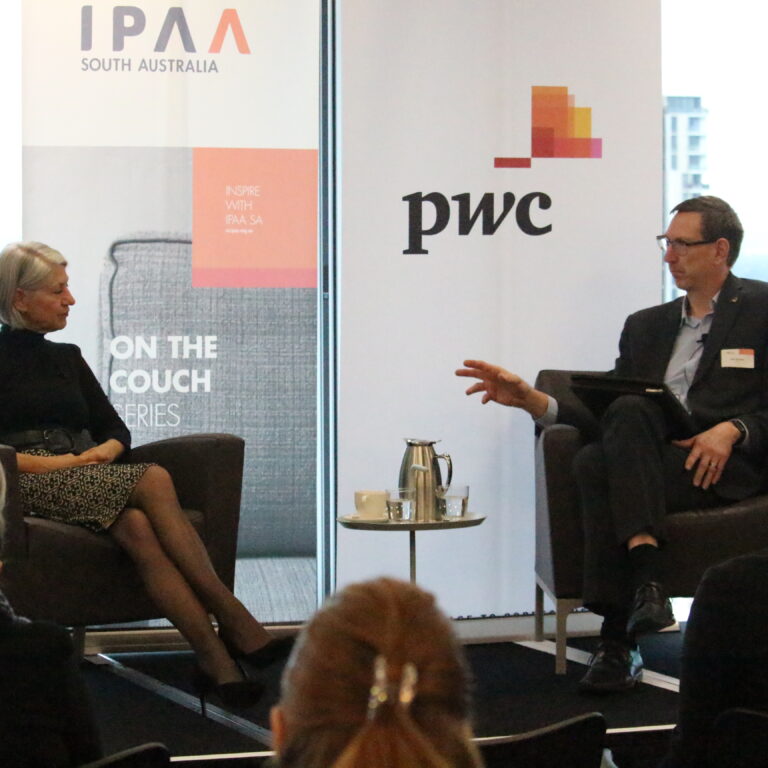

Have you thought about your career goals for this year and beyond and how you will take advantage of every opportunity? Studies from Harvard Business School have shown that people who set goals are 10 times more likely to be successful! It can seem challenging to stick to your goals throughout a busy year, however, there are some simple steps and tools you can put in place to help yourself achieve these….
Set SMART Goals
In order to achieve your goals, you may need to make a shift to your thinking around them. As a rule, you should always make your goals SMART. Though you have probably long heard of this popular goal setting acronym (illustrated below) you cannot argue with its clear-cut methodology. If you are setting a goal, you need to make it Specific, Measurable, Attainable, Realistic and Timely (SMART). By fitting your goals within the SMART framework, you will become more likely to follow through on them.

The BIG picture
Studies have shown that if you train your brain to think about what you want in life and then take actions to achieve it, this will form part of your identity. As explained by Positive Psychology, effective goals are based on values and ethics, because if you are not aligned with your goals and they do not resonate with your core principles you are likely not to achieve them.
It is about understanding your strengths, weaknesses, likes, dislikes, and core values, and working with them. If knowing yourself is the first step in reaching your goals, then the next step is thinking on the macro level and setting yourself a goal around the type of person you want to be. If your goal this year for example, is to become a team leader or manager then you need to step back and consider why do you want this? What is the goal behind the goal? For some this might be linked to the goal of being able to inspire people, for others it might be that they want to be the kind of person who others approach for knowledge.
Once you can identify your macro goal you will find it much easier to see where your other goals fit within this and to create a plan moving forward to achieve these.
The power of sharing your goals
Aside from actually being able to identify your goals (both big and small) you NEED to give priority to your goals – and for some of us this can be challenging. It is one thing to say in your head that you will become a team leader by this time next year, but another entirely to actually take the steps to achieve it – this requires accountability, both to yourself and ideally, to someone else. That’s right, your goals do not need to be a secret, be proud and passionate about what you want to achieve and let someone you know and trust in on them. Not only will this help you determine if your goals are achievable, but you will also have someone else who you are accountable to for your progress (or lack of progress) on meeting your goals – not to mention someone to cheer you on. If you do not have anyone who you can share with, you can also give yourself a sense of accountability by writing down your goals and keeping them in a place that you see frequently (a sticky note on your bathroom mirror, a daily calendar reminder…).
Remember, a person who is goal orientated is more likely to have a “positive approach towards life and perceive failures as temporary setbacks, rather than personal shortcomings” and in today’s world isn’t that something we all need?
Ready to take your goal setting a step further?
Becoming a Personal Member of IPAA SA will support you at every stage of your career journey. We are currently offering our new Goal Setting Starter Pack for free to all our Personal Members. This digital guide and workbook is a vital tool you can use to explore, plan and track your goals this year and beyond.
To become a member or explore the full range of membership benefits please visit here.
Schrader, J 2018, ‘Why New Year’s Resolutions Fail’, Psychology Today, viewed 12 January 2022, <https://www.psychologytoday.com/au/blog/modern-mentality/201812/why-new-years-resolutions-fail>.
Chowdhury, MR 2021, ‘The Science & Psychology Of Goal-Setting 101’, Positive Psychology, viewed 12 January 2022, <https://positivepsychology.com/goal-setting-psychology/>.
Peterson, J 2018 ’12 Rules for Life: An Antidote to Chaos’. Available here: https://www.amazon.com.au/12-Rules-Life-Antidote-Chaos/dp/0345816021
New Tech Northwest, 2019, The Psychology of Writing Down Goals. Available here: https://www.newtechnorthwest.com/the-psychology-of-writing-down-goals/#:~:text=How%20about%20because%20a%20Harvard,than%20those%20without%20any%20goals.
Image Credit: Photo by S O C I A L . C U T on Unsplash




The Institute for Public Administration Australia (IPAA) has released its National Strategic Plan 2021-2025. Developed by IPAA’s National Council in consultation with IPAA’s eight Divisions, and designed by IPAA SA’s very own Marketing and Membership Coordinator, Kathryn Oosthuizen. The plan provides a framework to re-focus IPAA’s vision of:
This strategic plan provides a foundation to celebrate, reach out and work with others on excellence in public administration and public policy across Australia. It outlines four key objectives with relevant actions associated to them to ensure this plan is delivered effectively. These objectives include:
These objectives are underpinned by nine actions that the Chief Executive Officers and Executive Directors of the eight Divisions, and the National Executive Director have been tasked to implement. A key to the success of this plan is developing strategic partnerships which help support the signature events and new initiatives which will be implemented.
Monitoring, evaluation and reporting mechanisms have also been included in the strategy to measure ongoing successes and allow opportunity for refinement as required.
For more information about the plan, contact the IPAA National Office at info@ipaa.org.au. See the original IPAA National News article here.
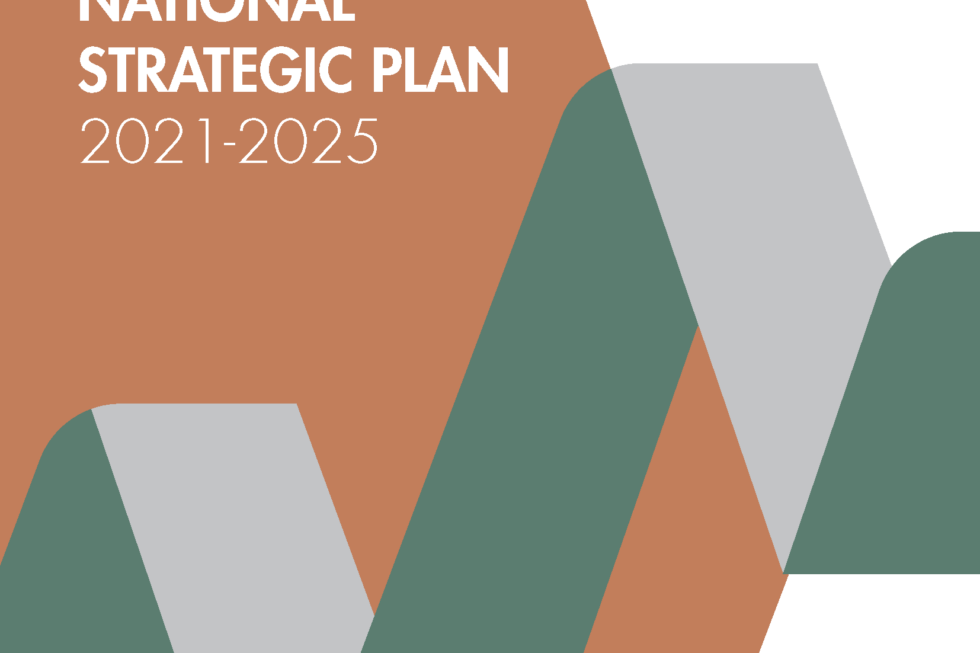
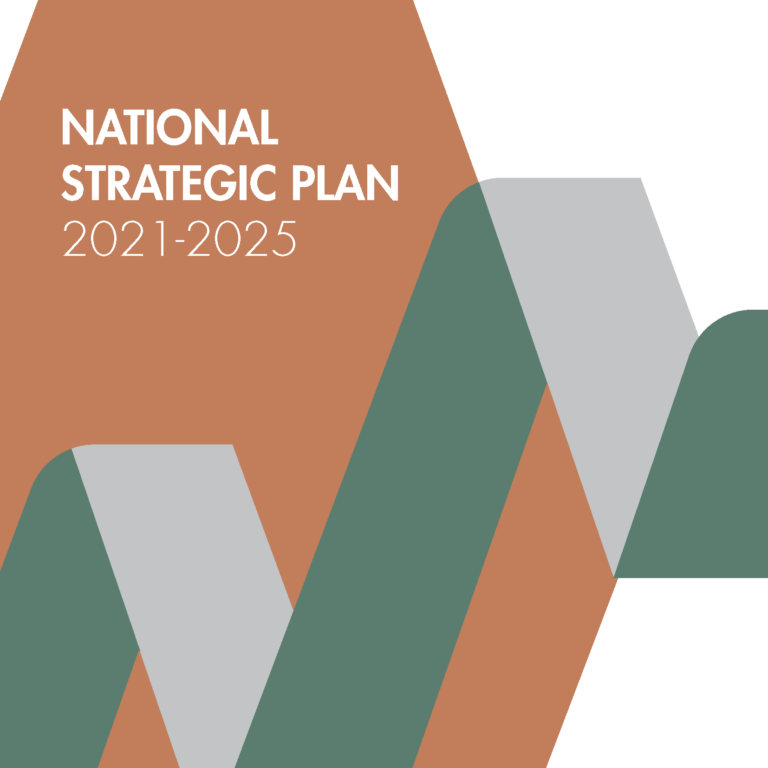
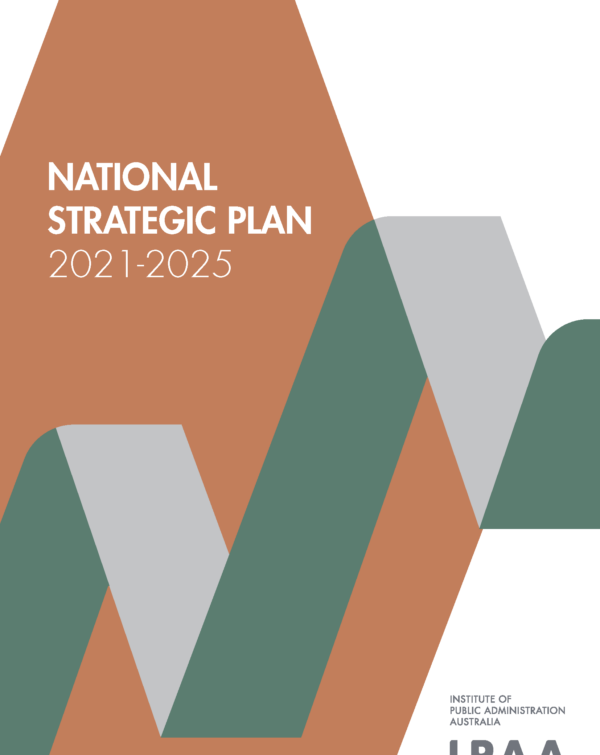
At the 2021 IPAA National Conference held in Brisbane this week, Dr Gordon De Brouwer PSM FIPAA announced the 2021 National Fellows to be recognised by the institute. This year not one, but two, South Australian Members were recognised with the award of Fellowship. Our Divisional Council is pleased to congratulate Caroline Mealor and Ruth Ambler as worthy recipients of the highest accolade of IPAA and welcome them into an esteemed cohort of Fellows.
Fellowship of the institute recognises the achievements and commitment of members of the institute to the best practice of public administration, as well their contributions to the goals on the institute.

Caroline Mealor FIPAA is the current Chief Executive of the Attorney General’s Department (AGD) and is also the Company Secretary of our Divisional Council. Caroline is highly committed to the reform of the criminal justice system and has led significant reform in this area. In addition, she has led South Australia’s involvement in the National Redress Scheme and coordinated the State’s response to both the Royal Commission into Aged Care Quality and Safety and the Royal Commission into Violence, Abuse, Neglect and Exploitation of People with Disability. Caroline firmly believes in the importance of skilled leaders at all levels and has encouraged a strong focus on leadership development across her department through a number of initiatives designed to upskill and grow the next generation of leaders in the AGD.

Ruth Ambler FIPAA is the Executive Director, Cabinet Office of the Department of the Premier and Cabinet and a long time patron and member of IPAA SA. Ruth has led a varied and impactful career in the South Australian public sector, spanning departments including Human Services, Community Investment and Support, Aboriginal Affairs and Reconciliation and more. In her current role in Cabinet Office, Ruth supported a newly elected Government who had not been in power for 16 years. During this time, Ruth implemented measures to support a Cabinet-led Government that positioned DPC to coordinate and lead whole of government reform and strategic initiatives. Ruth also led the implementation of the Boarding Call database which made it easier for South Australians to join one of more than 200 government boards that work to make a difference in our state. In addition to this, Ruth has also has significant positive impact on Reconciliation action within SA, taking a leading role in the Reconciliation Action Plan 2020-23.
Congratulations once again to both Caroline and Ruth on this most-deserved recognition for their efforts and commitment to the betterment of public service in our state. To view all National Fellows, please visit here. For more information on the National Fellowship award and IPAA National, please visit here.
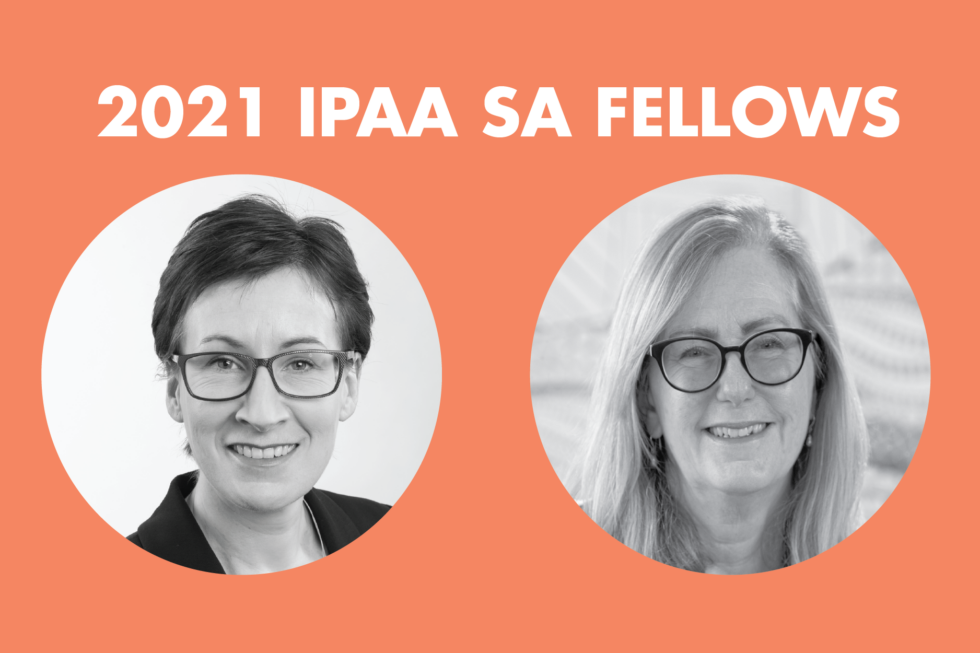
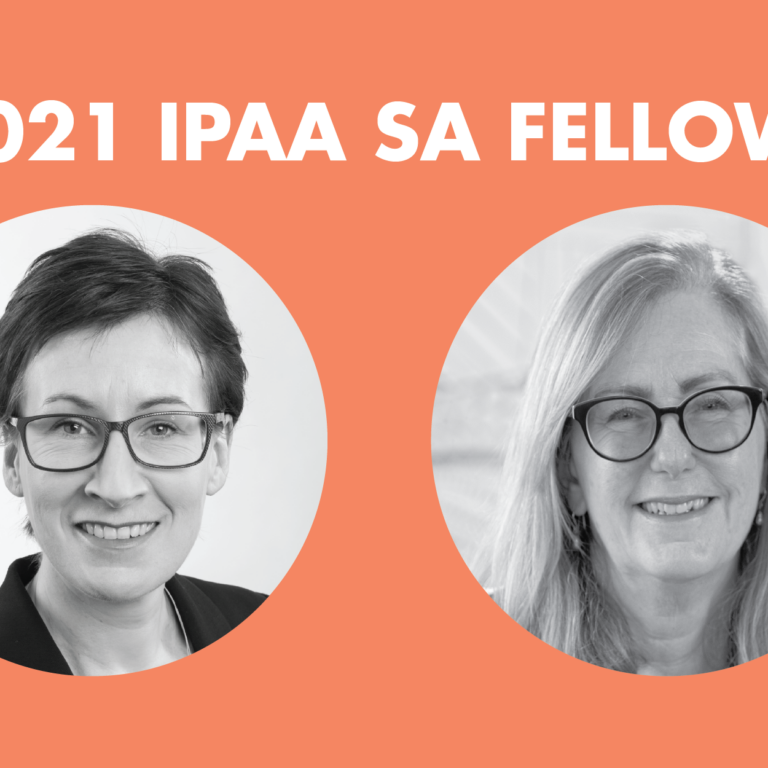


Membership starts from only $99 per year and is open to anyone working within or in association with the public sector.
Become a Member

Stress is defined by Health Direct as an “expected human response to challenging or dangerous situations.” Small amounts of stress can be supportive to our growth and development, but large amounts of stress can decrease alertness, energy and productivity.
Did you know? Stress releases your ‘fight or flight’ response, which in turn releases adrenaline and cortisol hormones that increase your heart rate, metabolism and breathing.
Some of the signs of stress include:
Please seek professional advice or contact Lifeline on 13 11 14 if you or someone you know is in crisis.
You have identified yourself or someone you know as being stressed, now what?
There is a range of different techniques and strategies that can help improve your stress levels at work, which in return can help re-motivate you. We have 5 tips for managing stress, however, we do recommend you seek a health professional or complete Health Direct’s online symptom checker to get advice on your best course of action.
Tip #1 | Strategies and Activities
It is important for you to create a strategy so you know exactly what you need assistance with, so you can make these changes and can see progress. Without any clear direction or goals, you can fall back into your bad habits again.
Find an activity you can complete when you are feeling stressed, this can help you to stop, calm down, refocus and revaluate the situation. Whether you are doing mindfulness activities to help you rethink your emotions, or find a physical activity you can do which will help in that given situation.
Lumosity is an online game developed by neuroscientists which aims to empower individuals to live better and brighter lives. It starts by testing your attention, flexibility and maths skills to then provide you with insights
Tip #2 | Meditation and Relaxation
Meditation is explained by Healthline as being “the habitual process of training your mind to focus and redirect your thoughts.”
By meditating you can increase awareness of yourself and what’s happening around you, which can help you to reduce stress, create healthier habits and have a more positive outlook on life. Taking the time to stop and rewind is extremely important, especially as we are moving a million miles a minute.
There are a variety of different ways you can meditate or relax, you just need to find what works for you. For more information on the types of meditation read the Healthline article here.
You can also relax at work by going outside for some fresh air, giving your hands or body a massage (or use a roller), relaxing your muscles, stepping away from your computer and have some undisturbed alone time in a quiet space, take deep breaths or listen to some calming music or sounds. Remember to slow down and take time for yourself, as work cannot be done if you are not well or in the mental headspace to complete it.
Tip #3 | Health and Fitness
Your physical health and fitness is so important, as exercise is linked to mood enhancement and the blood pumped into your brain helps you to think more clearly. This in return can increase the part of the brain which is responsible for memory and helps protect you against injury and diesease.
The Australian Guidelines recommends 30 minutes of moderate to intensive physical activity throughout the day. It is also important that during this time you practice mindfulness and choose activities that you enjoy to keep you motivated. By combining exercise with a healthy diet you will gain more energy throughout the day, increasing focus, attentuion and productivity at work.
Looking for an exercise that you can enjoy and fit into your daily routine? Try one of the following:
There are lots of ways we can make small adjustments into our lives to improve our health and fitness. This includes taking the stairs instead of the lift, walking to work, ‘deskercise’ (this can be a fun team exercise), stretching and standing up from your desk for at least 1 minute every hour.
Tip #4 | Find Your Happy
Whether you keep a journal or a mental log of every time you feel happy, then think about what exactly made you feel that way in the moment. This can help you to create purpose and give you more control over your own emotions. This is also a process of trial and error, if you try something to make you feel happier and it didn’t work then pick yourself up and try something else.
It is also important to remain grateful and find positives in your day even when you are feeling down. Start by writing down 3 things you are grateful for in your day, and this can also be used to turn your negatives into positives.
For example, you are informed by your manager that a new policy is going to be enforced which means that the project you are working on now needs to be reworked and changed. You are thankful for the opportunity to review your work and improve it to a higher standard. If you can change your mindset to see things in a more positive light then your negative thoughts will disappear and you will be happier for it.
Remember there are people around you that can help you to find your happy, you are not in this alone.
Tip #5 | Keep Informed and Stay Connected
The world is changing and we know it! But it’s more important than ever for us to keep learning and maintain social connections with others.
Ways you can keep informed and stay connected includes:
If you want to meet new people in the industry, get discounted training to stay informed and up to date in your career, then register for an IPAA SA Membership here.
Resources
Health Direct 2019, Stress, Health Direct, viewed 7 October 2021, <https://www.healthdirect.gov.au/stress>.
Health Direct 2019, Exercise and Mental Health, viewed 14 October 2021, <https://www.healthdirect.gov.au/exercise-and-mental-health>.
Very Well Mind 2021 Effective Stress Relievers for Your Life, viewed 14 October 2021, <https://www.verywellmind.com/tips-to-reduce-stress-3145195>.
Photo by Elisa Ventur on Unsplash



Looking for a podcast to get inspired, learn something new or to confirm that you are going in the right direction? IPAA have some public sector specific podcasts which feature some insightful conversations with local public service professionals.
#1 – IPAA ACT | Work With Purpose Podcast Series
This podcast series explores the important role of the Australian Public Service and their roles in supporting the Government’s response and recovery from the COVID-19 pandemic. Focusing on priorities for the future and key learnings /takeaways from leaders in the sector.
Available on the IPAA ACT website.
#2 – IPAA ACT | Integrity Series
The Integrity Series is a four-part podcast series produced in partnership between IPAA ACT and the Australian Public Service Commission (APSC). It explores the meaning of integrity and the importance of harnessing integrity as an APS craft to build a high performing and trusted public service.
Available on the IPAA ACT website.
#3 – IPAA VIC | Public Sector Perspectives
IPAA Victoria presents Public Sector Perspectives, a podcast featuring conversation with incredible people highlighting the interesting work in government and across the Victorian Public Sector.
Available on the IPAA ACT website.
